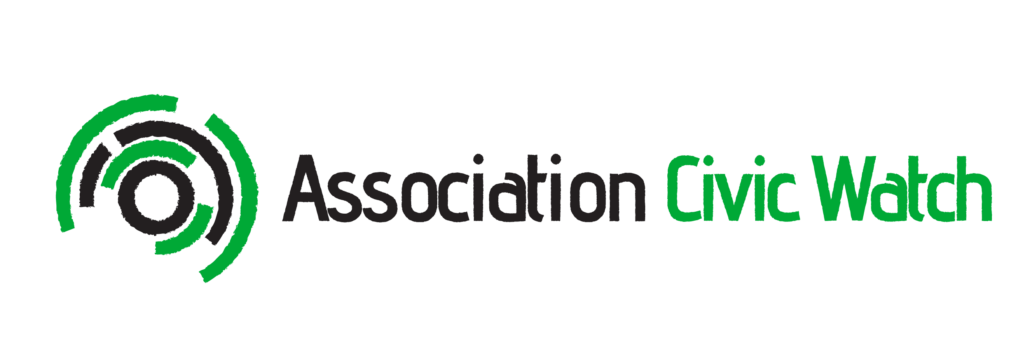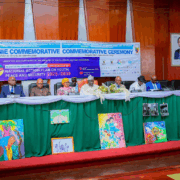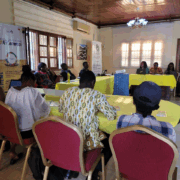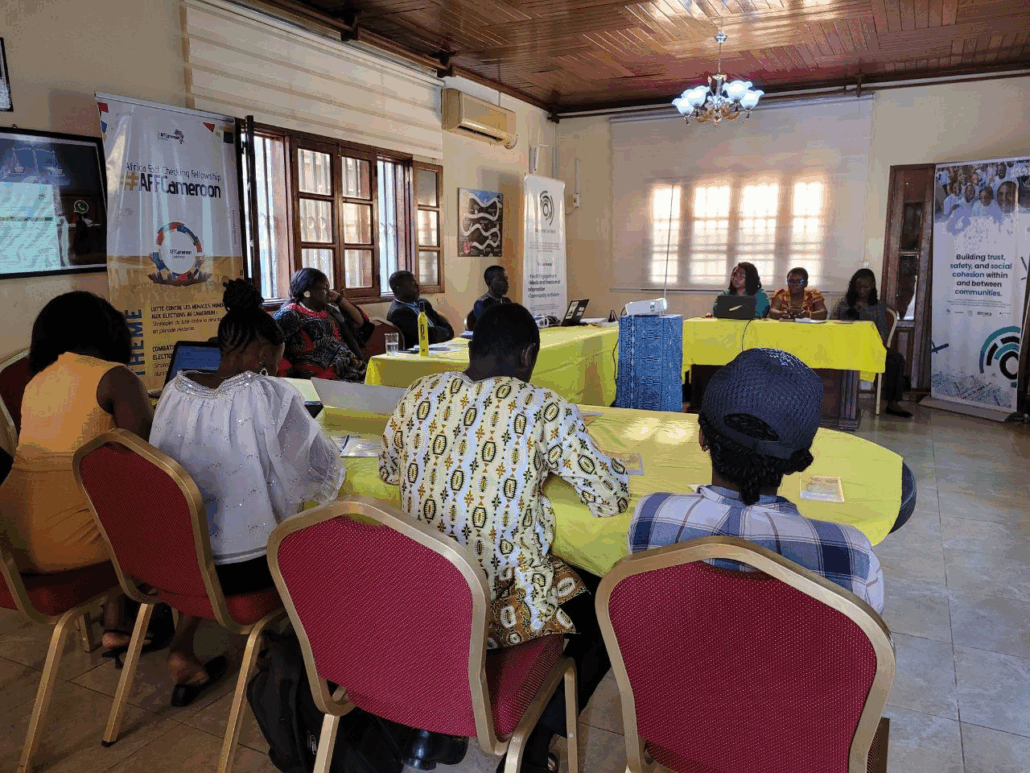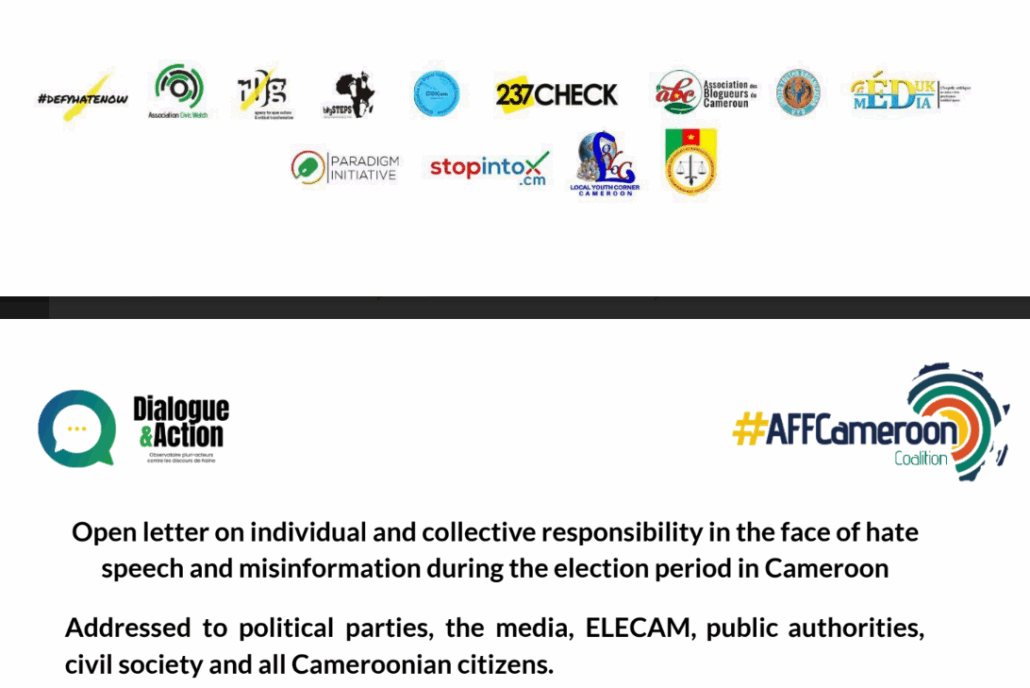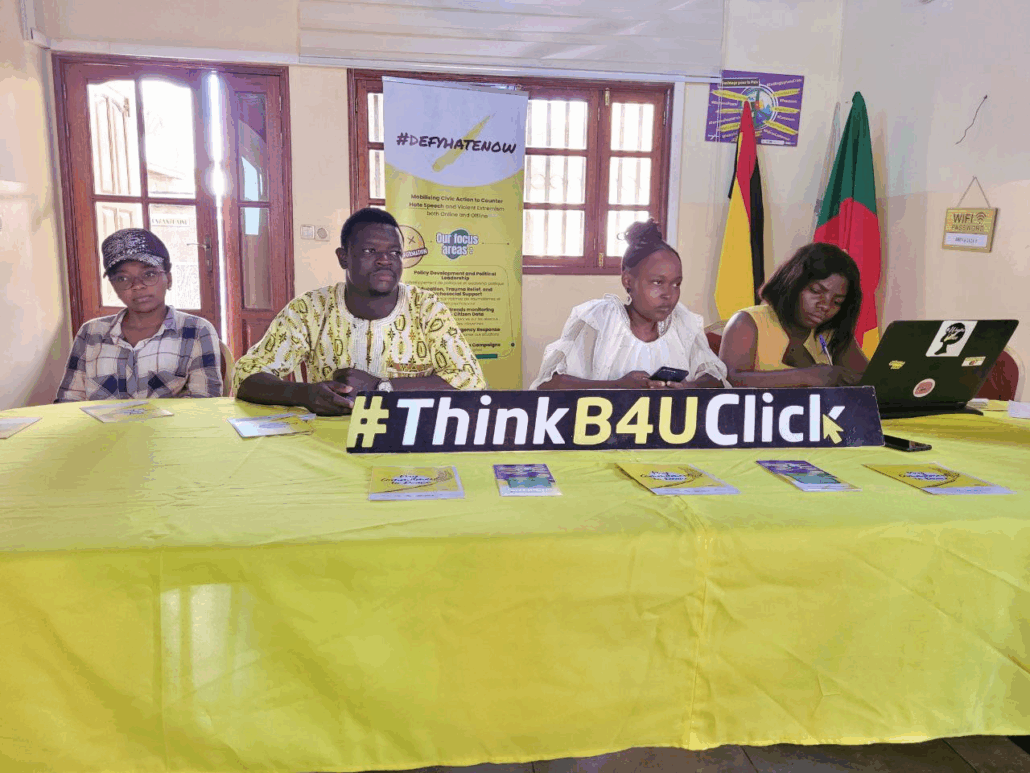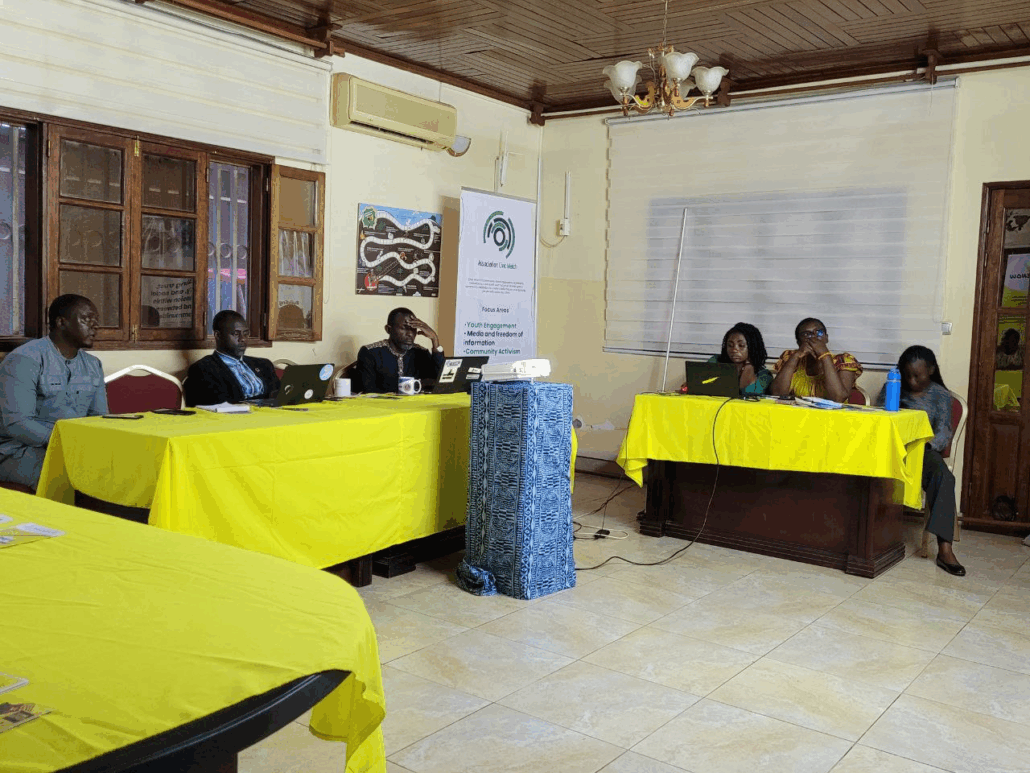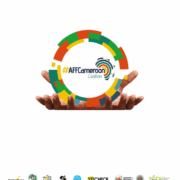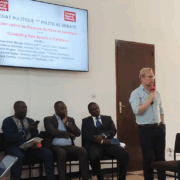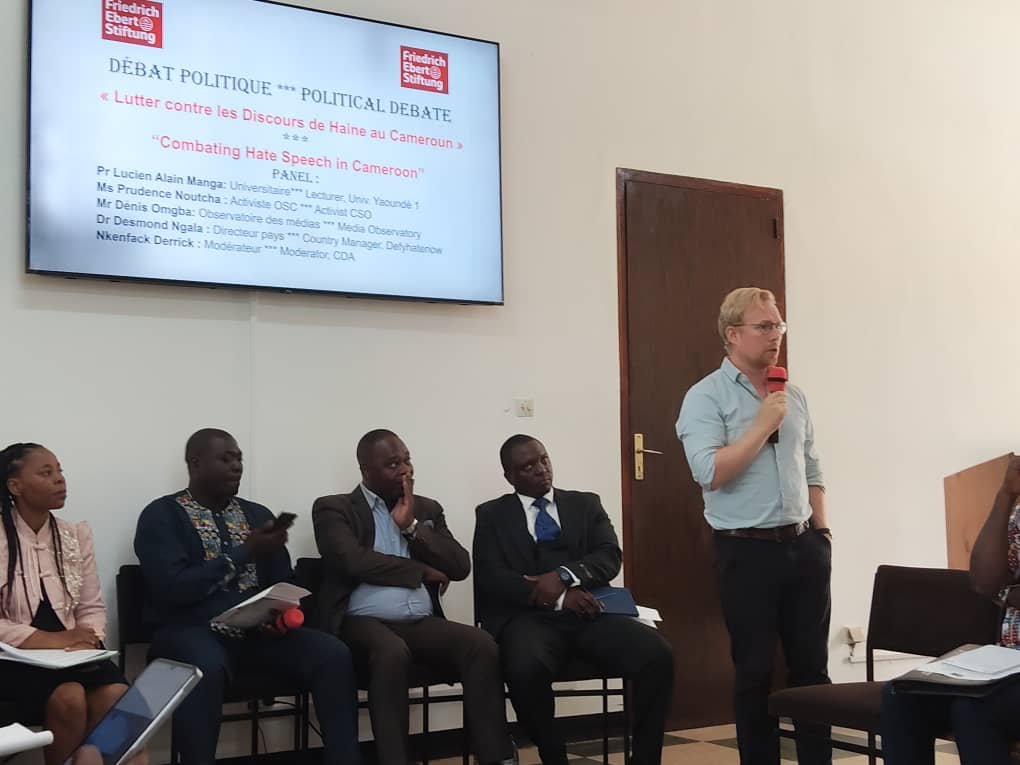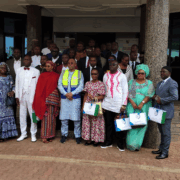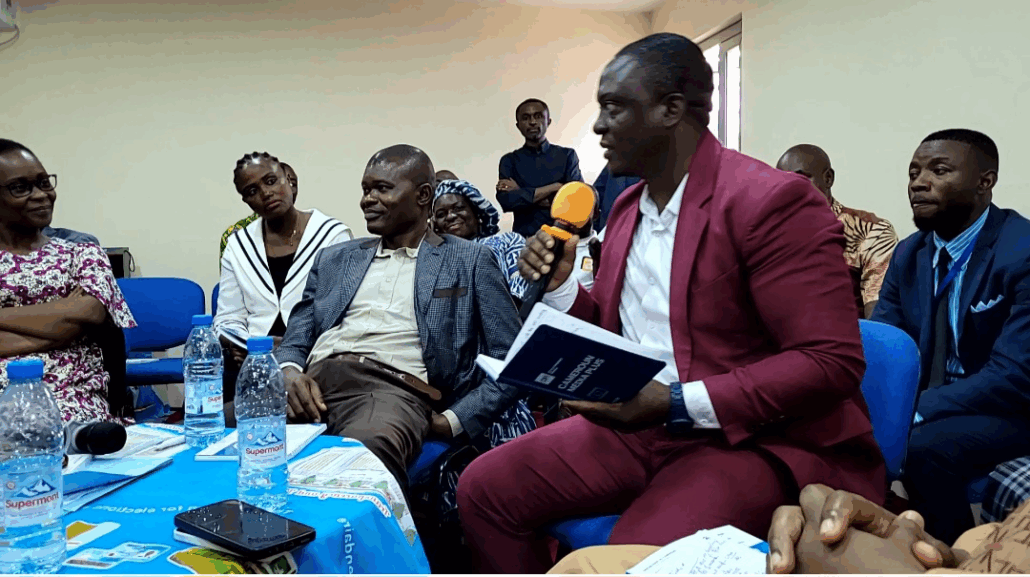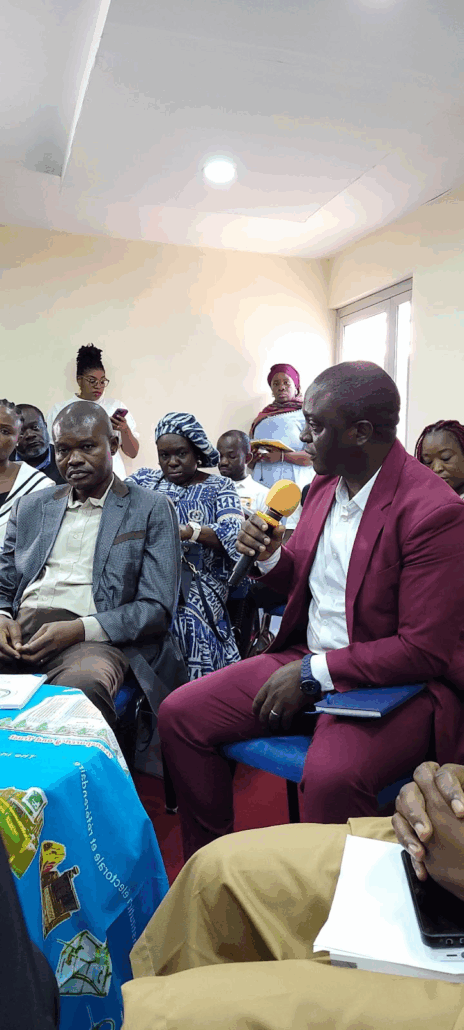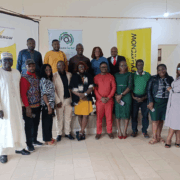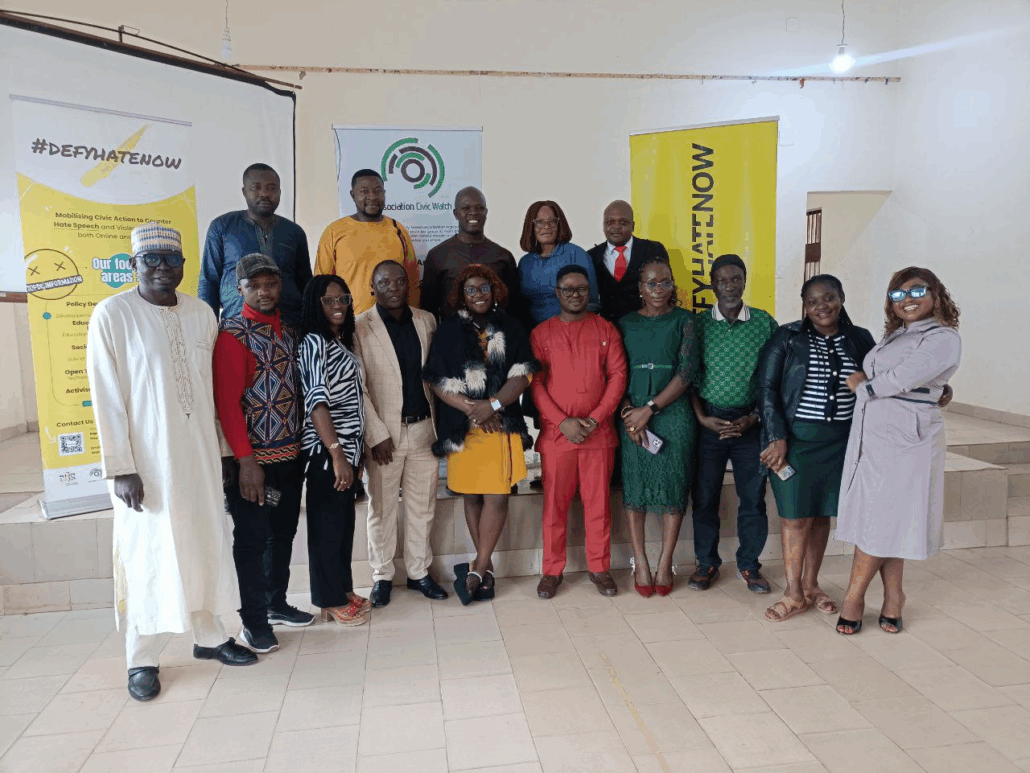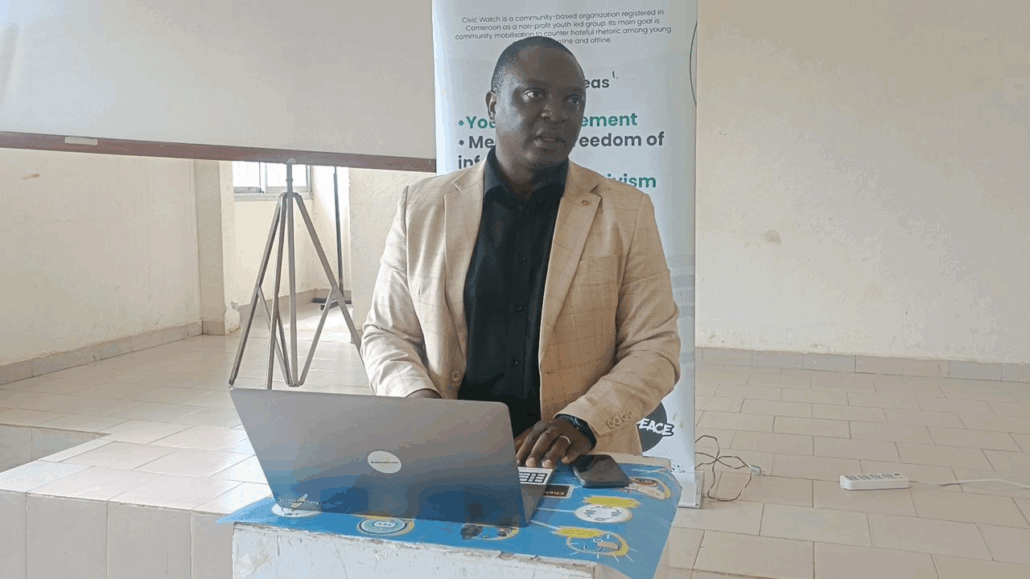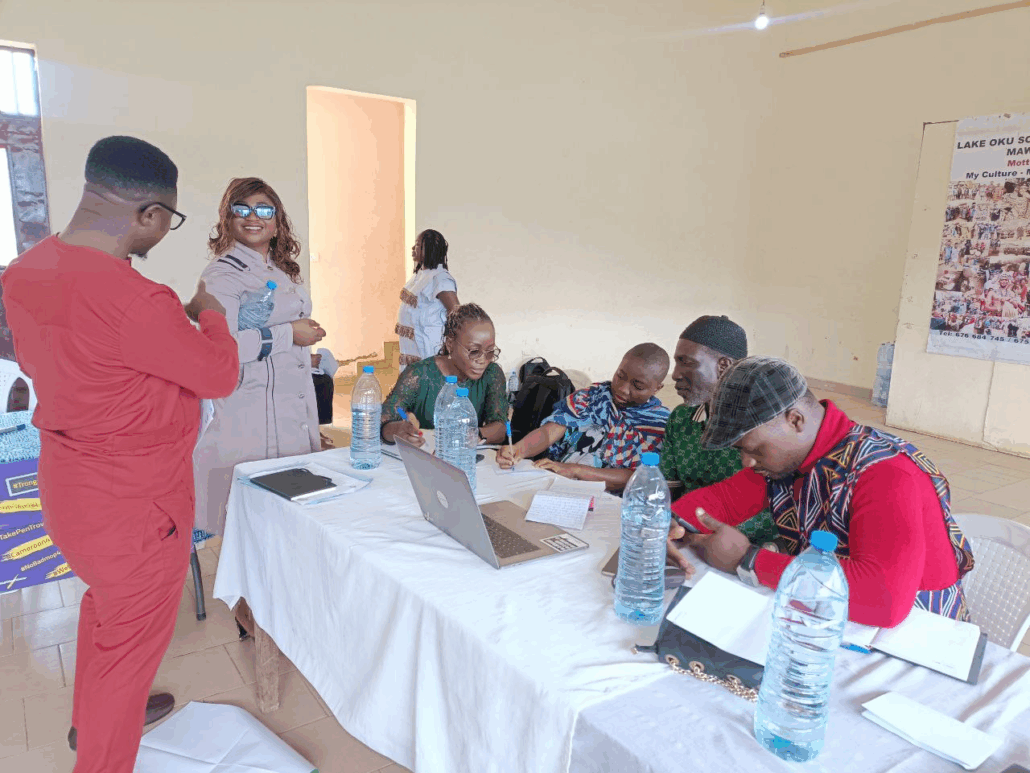Civic Watch Cameroon: Advancing Peace and Inclusion through the National Action Plan for Youth, Peace, and Security
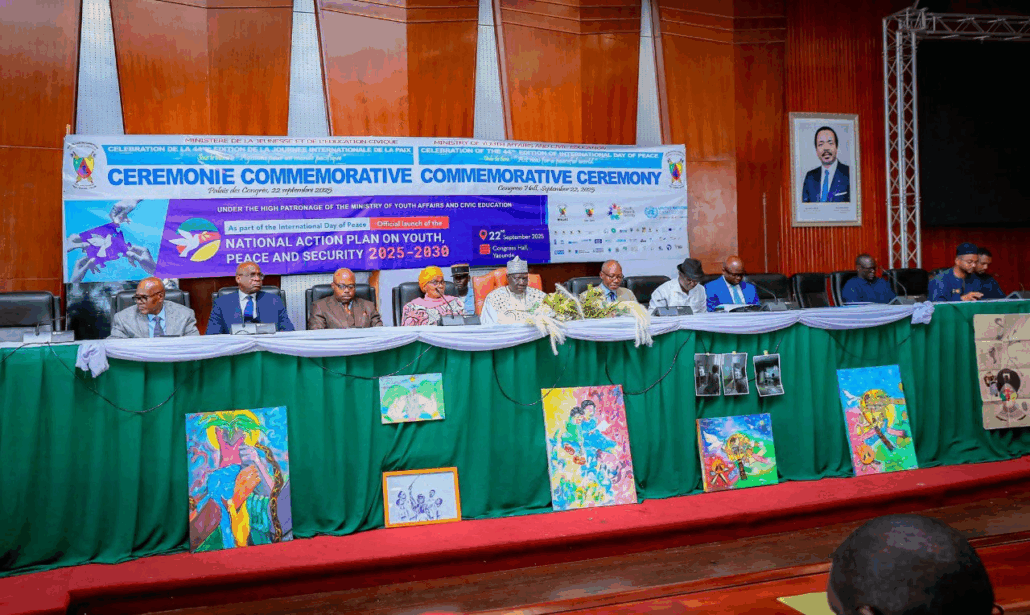
On September 22, 2025, Cameroon unveiled its National Action Plan (NAP) on Youth, Peace, and Security (YPS) 2025-2030. Resulting from wide-ranging consultation and active participation, the NAP on Youth, Peace and Security represents a concrete and innovative response aimed at fostering the active involvement of young people, youth organizations, and youth movements in conflict prevention and the sustainable consolidation of peace in Cameroon.
This strategic instrument, in line with United Nations Security Council Resolution 2250 and the Continental Framework on Youth, Peace and Security, reflects Cameroon’s commitment to granting its youth a central role in conflict management, promoting positive transformation, and fostering inclusive and lasting peace.
Cameroon, with a predominantly young population (65% under the age of 35), is positioning itself as a regional leader in Central Africa by recognizing the strategic role of its youth in building peace. The(NAP-YPS) 2025-2030 is the first of its kind in the CEMAC sub-region, and it is built upon the international frameworks of the United Nations (Resolutions 2250, 2419, 2535) and the African Union (Continental Framework on Youth, Peace, and Security). Cameroon’s National Action Plan on Youth, Peace, and Security (2025-2030) is a significant step towards inclusive peacebuilding, aligning with the United Nations Security Council Resolutions 2250, 2419, 2535, and the African Union’s Continental Framework on YPS. This strategic effort recognizes that, with 65% of the population under 35, Cameroon’s youth are not only beneficiaries of peace, but also key actors in creating an inclusive, sustainable peace.
This Action Plan addresses the challenges that weaken young men and women, who are often victims of a violent system. Cameroon faces multiple crises: Boko Haram, the crisis in the North-West and South-West regions, and inter-community tensions. These situations have a direct impact on the youth, who face unemployment, insecurity, inequality, and violence, including gender-based violence. The (NAP-YPS) aims to transform this reality to reinforce the contribution of young people to the creation of a just and peaceful society. This plan is therefore the result of a vast participatory process that has consulted more than 4,500 young people, civil society organizations, and community leaders since 2017.
This National Action Plan targets Cameroon’s wide range of problems, including the Boko Haram insurgency, the Anglophone conflict, refugee influx, and inter-communal conflicts, which adversely affect young people through unemployment, insecurity, inequality, and gender-based violence. Youth, who are frequently caught up in these violent spaces, are critical to transforming this situation. Since 2017, the Plan has been developed through an extensive participatory process that has involved over 4,500 young people and partners. Its goal is to turn youth from victims of a violent system into empowered contributors to a just, inclusive, and peaceful society. It promotes youth participation, protection, prevention, partnerships, and reintegration, which is consistent with the African Union’s Continental Framework on Youth, Peace, and Security.
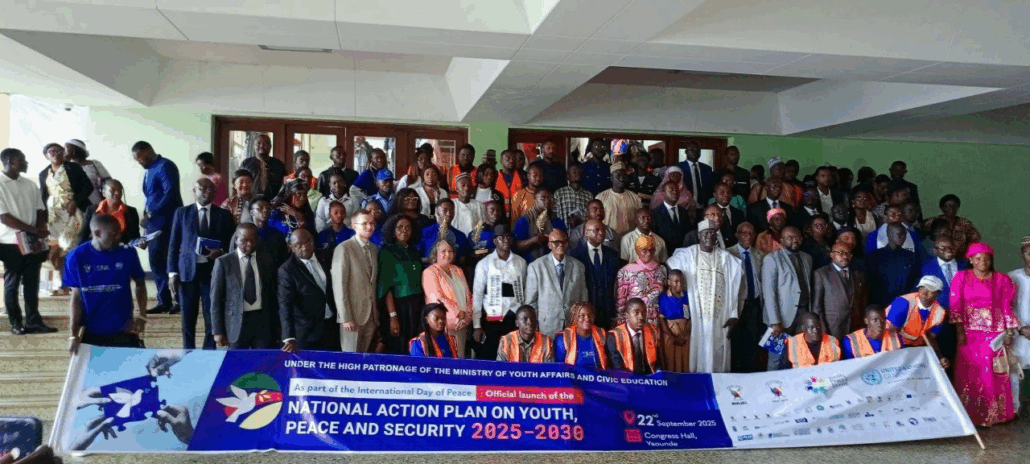
Civic Watch’s Contribution to National Peacebuilding Efforts
Since 2020, Civic Watch has played a frontline role in conflict-affected zones by countering hate speech, preventing online and offline incitement to violence and violent extremism, and combating misinformation. Under the leadership of Ngala Desmond Ngala, who has been instrumental in contextualising prevention mechanisms and promoting bottom-up approaches to policy change, Civic Watch has emerged as a catalyst for inclusive peacebuilding in Cameroon. Through his guidance, the organization translates grassroots insights into actionable policy recommendations that reflect community realities.
Civic Watch has been a frontline actor in Cameroon’s conflict zones since 2020, putting the Youth, Peace, and Security (YPS) agenda into action through targeted interventions. These interventions combat hate speech, misinformation, and disinformation, and prevent incitement to violence and violent extremism. The organization’s unique strength lies in its community mobilization efforts that engage young people in dialogue, tolerance, and peacebuilding. Believing firmly in the transformative power of youth, Civic Watch serves as a platform to ensure that youth voices have a meaningful influence on peace processes. Civic Watch’s specialized programs and campaigns are useful instruments that directly enhance the five pillars of the YPS agenda:
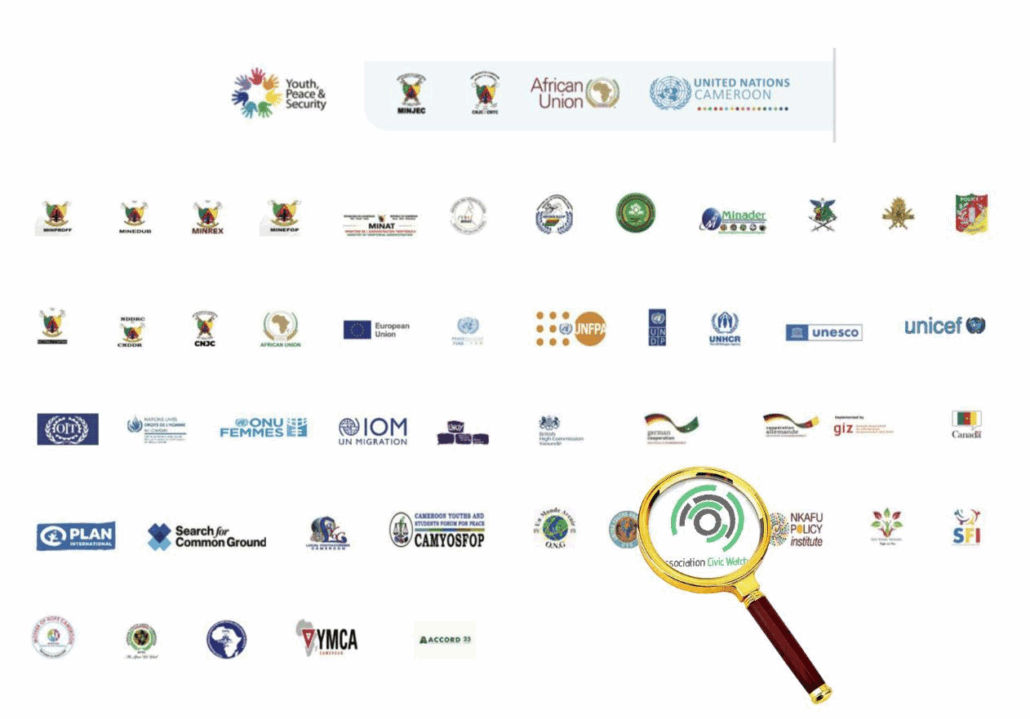
Participation: Recognizing youth as critical agents of change, Civic Watch empowers young people by ensuring their voices are included in peace processes. The organization offers training in non-violent conflict resolution and equips young people with leadership skills, enabling them to engage actively and meaningfully in peacebuilding efforts. This emphasis on youth participation enhances the inclusiveness and sustainability of peace initiatives. This pillar emphasizes the meaningful involvement of young people in peace processes, ensuring their voices are included in the design and implementation of peace initiatives. Civic Watch’s role as a platform for youth inclusion, advocacy for government commitments to rebuild young people’s trust, and efforts to address challenges faced by women and girls in accessing public spaces all highlight empowerment and active participation. Programs such as PeaceWavers create networks of young peace ambassadors who foster inclusive dialogue and mutual understanding across communities, ensuring youth voices shape peace processes. Civic Watch also empowers young people with leadership skills and advocates for their inclusion in decision-making spaces.
Prevention: Through its youth engagement pillar, Civic Watch has been at the forefront of educating communities on conflict resolution and the dangers of hate speech, and by monitoring discourse, Civic Watch helps create peaceful environments. Programs designed by Civic Watch such as #Act4Peace and #PenNotGun promotes education and non-violence, directly tackling the root causes of conflict. Early warning and early response monitoring further enable timely interventions to prevent escalation.
Protection: Civic Watch contributes to the protection of communities by mitigating the spread of hate speech and xenophobia, factors that often exacerbate violence and insecurity. The #Media4Peace and the Africa Fact-Checking Fellowship (AFFC) program to combat misinformation, disinformation, and hate speech, which are frequent triggers of conflict as well as protecting vulnerable and less connected communities from misinformation while promoting information integrity. By raising awareness about the dangers of inflammatory rhetoric, Civic Watch helps to safeguard vulnerable populations and reduce violence.
Through rigorous fact-checking and raising awareness on the harmful effects of inflammatory rhetoric, the association works to safeguard vulnerable populations from divisive and harmful influences. Their community monitoring and early warning activities further help to de-escalate tensions in crisis-prone zones, protecting citizens from potential violence and instability.
Partnership
Believing in the power of collaboration to achieve common goals, Civic Watch works closely with government bodies such as MINJEC, the Bilingualism Commission, and youth councils, as well as with community and religious leaders. Alongside international partners like UNESCO MGIEP, these partnerships strengthen coordinated peacebuilding efforts and maximize resource sharing. By networking with community-based and youth-led groups, especially in conflict-affected regions like the North West and South West of Cameroon, Civic Watch fosters inclusive peace strategies that are community-driven and contextually relevant. These collaborative efforts enable broader outreach, resource mobilization, and unified responses to peace and security challenges across the country.
Conclusion
Cameroon, as an integral member of the International Community and the United Nations, recognizes the importance of not only adopting but also fully domesticating the principles of the Youth, Peace, and Security (YPS) agenda through a National Action Plan (NAP). This NAP serves as a practical guide for Cameroonian youth, government, civil society, international partners, and all stakeholders to collaborate in creating inclusive policies that ensure the protection, participation, and empowerment of youth in peace and security.
Civic Watch Association stands as a pillar of hope and practical action within Cameroon’s NAP on Youth, Peace, and Security. Through innovative programs, dedicated community engagement, and strategic partnerships, Civic Watch addresses immediate peace and security challenges while fostering long-term resilience and inclusive governance. Their work exemplifies the vital role of youth-led organizations in building a peaceful, just, and inclusive Cameroon for future generations. By preventing conflict through education and monitoring, promoting youth participation, protecting communities from incitement, and building strong networks for collective action, Civic Watch substantially advances the nation’s YPS agenda. Their holistic approach not only meets urgent peace needs but also invests in sustainable community resilience and governance.
